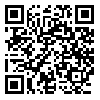Volume 5, Issue 2 (11-2021)
J Social Behav Communit Health 2021, 5(2): 729-738 |
Back to browse issues page
Download citation:
BibTeX | RIS | EndNote | Medlars | ProCite | Reference Manager | RefWorks
Send citation to:



BibTeX | RIS | EndNote | Medlars | ProCite | Reference Manager | RefWorks
Send citation to:
Naderi Nobandegani Z, Shiralinia K, Yasaminejad P. Investigation the Relationship between Anxiety Attachment Style, Anger Rumination, Spouse Forgiveness, and Marital Quality. J Social Behav Communit Health 2021; 5 (2) :729-738
URL: http://sbrh.ssu.ac.ir/article-1-171-en.html
URL: http://sbrh.ssu.ac.ir/article-1-171-en.html
1- Department of Psychology, Faculty of Psychology & Education,Yazd University, Yazd, Iran , zahra.naderi@yazd.ac.ir
2- Department of Counseling, Faculty of Education and Psychology, Shahid Chamran University of Ahvaz, Ahvaz, Iran.
3- Department of Psychology, Razi University, Kermanshah, Iran.
2- Department of Counseling, Faculty of Education and Psychology, Shahid Chamran University of Ahvaz, Ahvaz, Iran.
3- Department of Psychology, Razi University, Kermanshah, Iran.
Abstract: (1773 Views)
Background: The quality of the marital relationship has received more attention from family researchers in recent years; as many factors can affect and be affected by it. Therefore, this study made an attempt to investigate the structural relationships between anxiety attachment style, anger rumination, spouse forgiveness and the quality of marital relationship in married people.
Methods: The study population consisted of all married people in Shiraz. Among them, 204 married people (168 females and 36 males) were selected using the convenience sampling method and filling out Revised Adult Attachment Scale; Collins and Reid, Anger rumination scale; Sukhodolsky, Golub, Cromwell, Family Forgiveness Scale; Pollard, Anderson, Anderson, and Jennings, and Revision of the Dyadic Adjustment Scale Busby, Christensen, Crane, Larson. The method of research was correlation using path analysis. Then AMOS24 and SPSS24 were used for analyzing the data.
Results: Data analysis indicated that the path between anxiety attachment style to anger rumination, (p<0.000, β=0.56), spouse forgiveness, (p<0.009, β=-0.19), anger rumination to spouse forgiveness, (p<0.002, β=-0.36) marital quality (p<0.001, β=-0.16), spouse forgiveness to marital quality, (p<0.000, β=-0.68) were significant. All the coefficients were significant in 0.01 level. Also fit model indicators were: GFI=0.99, CFI=0.99, TLI=0.98, RFI=0.97 and χ2/df= 1.57. The structural relationships of the anxiety attachment style, anger rumination, spouse forgiveness and the marital quality as proposed in the conceptual model were significant.
Conclusion: Based on the results, it can be said that that married people with anxious attachment style regarding the challenges of marital life, ruminate more anger in relation to their spouse, which can reduce the amount of forgiveness and, ultimately marital quality
Methods: The study population consisted of all married people in Shiraz. Among them, 204 married people (168 females and 36 males) were selected using the convenience sampling method and filling out Revised Adult Attachment Scale; Collins and Reid, Anger rumination scale; Sukhodolsky, Golub, Cromwell, Family Forgiveness Scale; Pollard, Anderson, Anderson, and Jennings, and Revision of the Dyadic Adjustment Scale Busby, Christensen, Crane, Larson. The method of research was correlation using path analysis. Then AMOS24 and SPSS24 were used for analyzing the data.
Results: Data analysis indicated that the path between anxiety attachment style to anger rumination, (p<0.000, β=0.56), spouse forgiveness, (p<0.009, β=-0.19), anger rumination to spouse forgiveness, (p<0.002, β=-0.36) marital quality (p<0.001, β=-0.16), spouse forgiveness to marital quality, (p<0.000, β=-0.68) were significant. All the coefficients were significant in 0.01 level. Also fit model indicators were: GFI=0.99, CFI=0.99, TLI=0.98, RFI=0.97 and χ2/df= 1.57. The structural relationships of the anxiety attachment style, anger rumination, spouse forgiveness and the marital quality as proposed in the conceptual model were significant.
Conclusion: Based on the results, it can be said that that married people with anxious attachment style regarding the challenges of marital life, ruminate more anger in relation to their spouse, which can reduce the amount of forgiveness and, ultimately marital quality
Type of Study: Original Article |
Subject:
Psychology
Received: 2021/09/3 | Accepted: 2021/11/23 | Published: 2021/11/24
Received: 2021/09/3 | Accepted: 2021/11/23 | Published: 2021/11/24
Send email to the article author
| Rights and permissions | |
 |
This work is licensed under a Creative Commons Attribution-NonCommercial 4.0 International License. |








